Explainer: How Al-Qassam fighters executed one of the deadliest ambushes in Rafah
By Ivan Kesic
Gaza-based resistance movement Hamas carried out a new military operation in the southern city of Rafah, dealing another heavy blow to the Israeli occupation and its military forces.
The surprise ambush by the Al-Qassam Brigades, the armed wing of Hamas, resulted in the death of eight Israeli soldiers on Saturday. It was one of the deadliest ambushes since October 7.
The incident triggered a wave of reactions from Israeli settlers and soldiers, who expressed feelings of hopelessness and despondency over the regime's ongoing war on Gaza, which has killed 37,400 Palestinians without achieving any military objectives.
Where did the ambush take place?
According to a statement by the Al-Qassam Brigades, the ambush took place in Tal al-Sultan, a northwestern neighborhood of Rafah in the southern Gaza Strip.
This area, originally a housing project, is now home to about 25,000 Palestinian refugees and is almost indistinguishable from the Rafah refugee camp, which together host about 200,000 refugees.
The southern Gaza Strip, currently home to around 1.5 million Palestinians, has been suffering from a severe humanitarian crisis since October 7.
This crisis was exacerbated by the Israeli aggression on Rafah on May 6 and the subsequent blockade of the border crossing with Egypt, through which all humanitarian aid had previously passed.
The Tal al-Sultan refugee camp was the target of a brutal Israeli aerial attack at the end of May, in which at least 50 people, mostly women and children, were burned to death in their tents.
Since Friday morning, the Al-Qassam Brigades have reportedly been engaged in fierce battles with Israeli forces west of Tal al-Sultan.
Rafah deadly ambush proved weakening Hamas is just Israel’s illusion: Official#GazaGenocidehttps://t.co/2gjgqPQdAH
— Press TV 🔻 (@PressTV) June 17, 2024
How was the ambush carried out?
The ambush was executed on Saturday at 5:00 AM local time when an Israeli D9 military bulldozer entered the streets of the refugee neighborhood with the intent of demolishing Palestinian houses.
The Palestinian fighters allowed the bulldozer to penetrate deeper into their territory before targeting it with an Al-Yassin 105 shell, causing it to catch fire and resulting in the deaths and injuries of its crew.
When the Israeli rescue unit arrived, a Namer armored personnel carrier was also targeted and destroyed, killing all eight soldiers inside. According to Al-Qassam Brigades, the Namer was hit by an Al-Yassin 105 shell, an anti-armor missile developed by the Palestinian resistance movement in Gaza.
Israeli sources, such as Channel 13, reported that the fifth or sixth Namer in the convoy was hit by a powerful remote-controlled explosion, which took two hours to reach the wrecked vehicle.
Several Israeli social media accounts confirmed the Al-Qassam report, stating that an anti-armor missile was fired at the armored vehicle, instantly killing and burning the eight soldiers inside.
The Israeli news website Hadashot Bazman reported that military helicopters transported the soldiers’ bodies from the Rafah site to Beilinson Hospital in Petah Tikva and Shaare Zedek Medical Center in Jerusalem.
The Palestinian Al-Aqsa satellite channel reported that Israeli forces intensified their artillery and air bombardment on Rafah to cover up the incident and evacuate the dead and wounded.
The Israeli army finally acknowledged the loss of eight soldiers, including a deputy commander in the 601st Engineering Brigade, stating it was the deadliest ambush in months.
They also confirmed the deaths of two soldiers from the 179th Brigade in central Gaza due to an improvised explosive device (IED) and another soldier from the Givati Brigade who died from injuries sustained in Rafah, bringing the total number of Israeli soldiers killed on Saturday to 11.
Blacklisting Israel after '15,000 children killed' long overdue, says UN special rapporteur pic.twitter.com/vB59qjdQQR
— Press TV 🔻 (@PressTV) June 8, 2024
What were the reactions to the ambush?
The official Al-Qassam statement described the ambush as a complex and successful operation that demonstrated the resilience and strength of the resistance movement.
"Our complex and qualitative operation today in Rafah is a new confirmation of the enemy’s failure in the face of our resistance and a painful blow to its army... and we have more," said Abu Obeida, a spokesman for the Al-Qassam Brigades.
He noted that Gaza-based resistance fighters would continue their "painful strikes" and that Israeli forces would find nothing but ambushes of death in any part of the Palestinian territories.
The Al-Qassam Brigades also claimed to have targeted the Israeli command headquarters in the Netzarim axis with 114 mm short-range Rajum missiles.
The Al-Quds Brigades, the military wing of the Islamic Jihad Movement, stated that they, in coordination with the Al-Qassam Brigades, targeted the Sufa and Kissufim military sites in Gaza.
Israeli Prime Minister Benjamin Netanyahu described the ambush and the loss of eight soldiers as "another heavy price" for Israel.
Right-wing finance minister Bezalel Smotrich called the ambush "the heavy price of war," expressing frustration and calling for the "total destruction of the enemy."
In an unusual break from the typical line, Israeli army spokesperson Daniel Hagari admitted at a news conference, "It must be said frankly: we cannot return all the captives through military operational means."
Four days earlier, the Israeli regime acknowledged four dead and seven wounded soldiers in another ambush in Rafah, when a booby-trapped building collapsed on them.
Press TV's exclusive footage shows the aftermath of Israeli massacre in Nusseirat refugee camp, which led to the murder of at least 210 Palestinians pic.twitter.com/nAk5SZ7eOM
— Press TV 🔻 (@PressTV) June 8, 2024
Death blow for Israeli occupation
Saturday's ambush marks the deadliest day for Israeli forces since January when 21 Israeli troops were killed in a single attack by Palestinian fighters in central Gaza.
According to Tel Aviv regime data, at least 307 Israeli troops have been killed and thousands wounded since the beginning of the conflict in Gaza more than eight months ago.
The Israeli organization Nifgashim reported that thousands of Israeli soldiers are returning from Gaza suffering from post-traumatic stress disorder (PTSD), and that over 10,000 reserve soldiers have requested mental health services.
Israeli columnist Gideon Levy told Al Jazeera that the killing of eight soldiers is a "heavy price," arguing that more and more Israelis are dissatisfied and afraid this might become an endless war of attrition.
Doha-based professor Mohamad Elmasry told Qatari media that the Saturday attack showed that Israel's stated war goal of destroying Hamas remains elusive after eight months of combat.
He quoted US intelligence officials saying about 70 percent of Hamas’s fighting force remains intact, and the resistance movement has been able to recruit thousands of new members.
Hallel Biton Rosen, an Israeli journalist, wrote a personal message after speaking to Israeli officers in Rafah:
"Eight months and eight days I have been covering this war. More than once I have heard from senior officers, some very senior, criticism of the conduct of decision-makers in the political and security echelons - what I heard tonight is completely different. It is a major crisis of trust, real anger, and frustration."
"As for what the officers themselves said, it is a mix of exasperation, admission of failure, disillusionment, desperation, resentment, and deep distrust.”
Explainer: What makes Iran's Rezvan and Raad loitering munitions prized assets?
VIDEO | Unseen agony: Missing loved ones of genocide in Gaza
Iran cuts gold import tariff to zero
Pezeshkian: Iran determined to develop, boost ties with neighbors
VIDEO | Israel, Hamas ceasefire agreement: Closer than ever
VIDEO | Gaza ceasefire to be put in place under resistance conditions
Hot water and sewage: Palestinians share harrowing tales of torture in Israeli prisons
VIDEO | Thousands evacuated in Ethiopia amid earthquakes, volcanic eruption fears


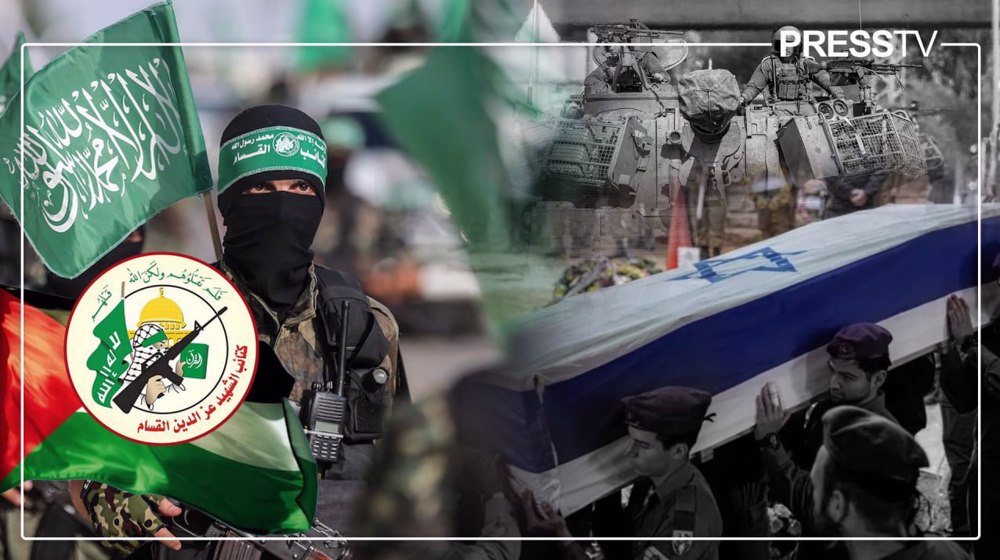
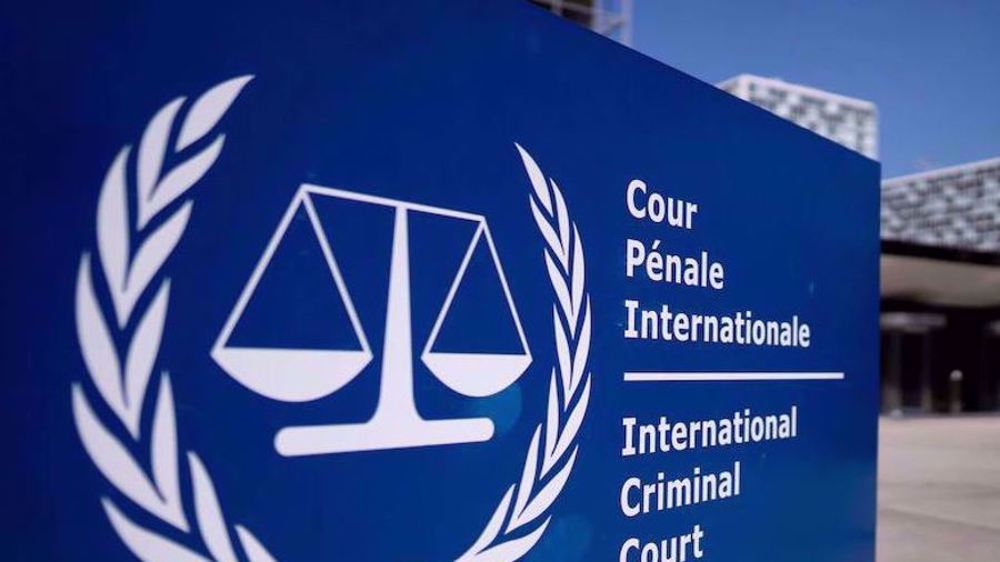
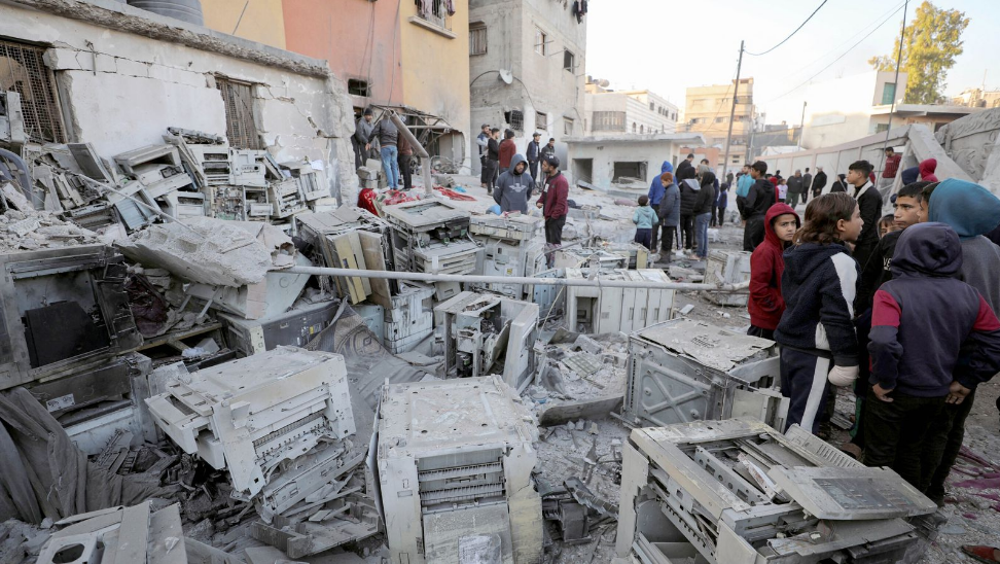
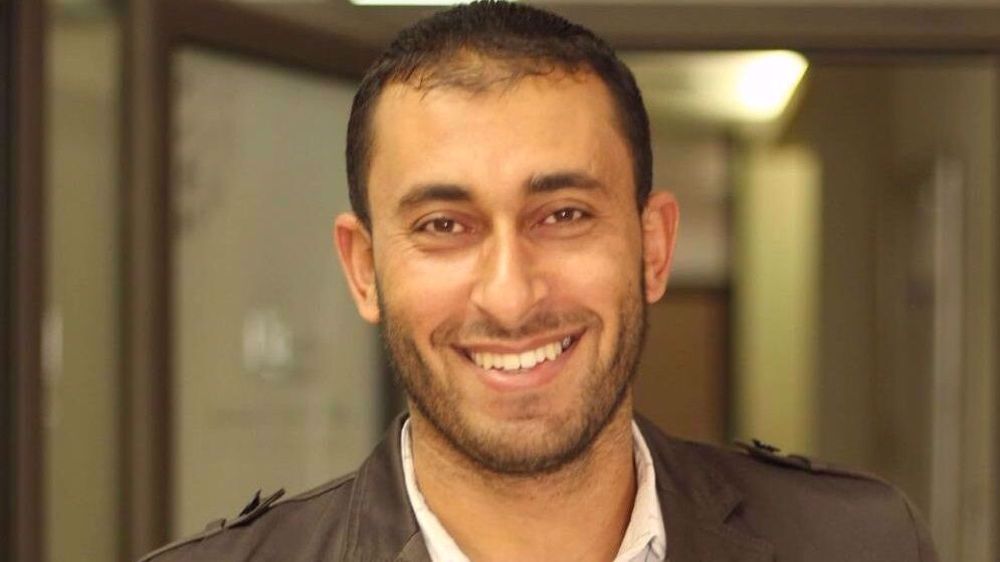



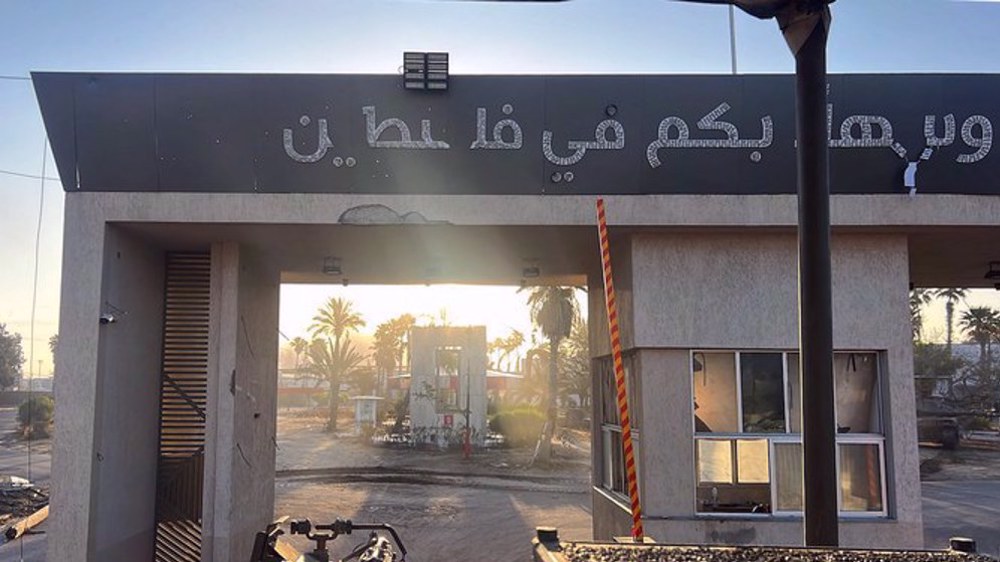
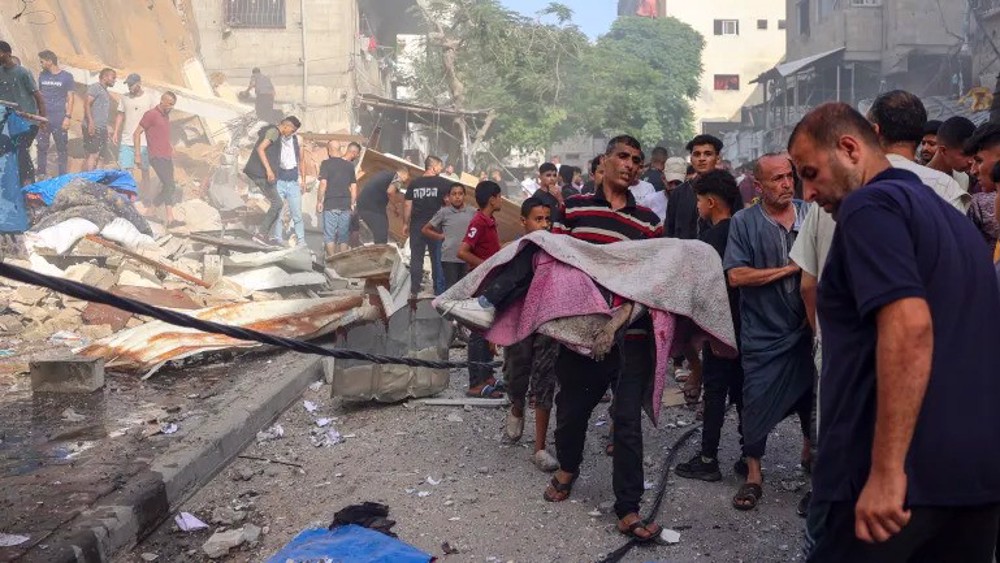
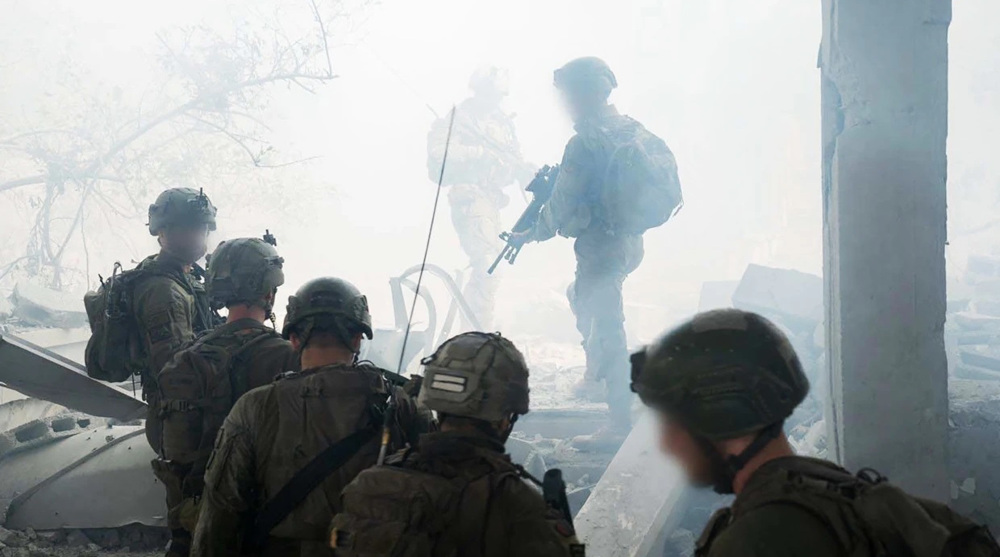
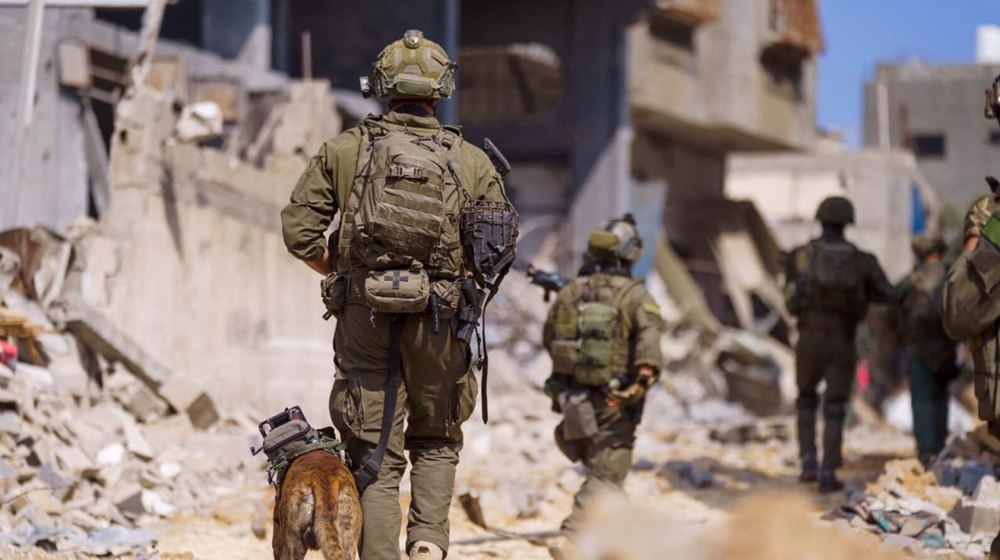
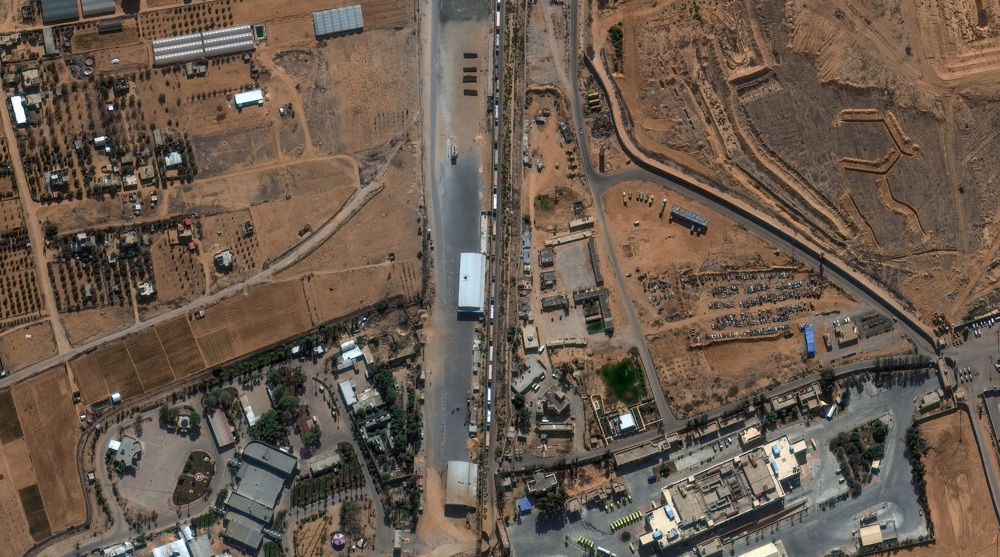

 This makes it easy to access the Press TV website
This makes it easy to access the Press TV website